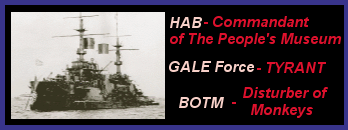School defends slavery booklet
Critic says text is 'window dressing'
By T. KEUNG HUI, Staff Writer
Students at one of the area's largest Christian schools are reading a controversial booklet that critics say whitewashes Southern slavery with its view that slaves lived "a life of plenty, of simple pleasures."
Leaders at Cary Christian School say they are not condoning slavery by using "Southern Slavery, As It Was," a booklet that attempts to provide a biblical justification for slavery and asserts that slaves weren't treated as badly as people think.
Principal Larry Stephenson said the school is only exposing students to different ideas, such as how the South justified slavery. He said the booklet is used because it is hard to find writings that are both sympathetic to the South and explore what the Bible says about slavery.
"You can have two different sides, a Northern perspective and a Southern perspective," he said.
The booklet isn't the only connection its two co-authors have with the school.
One of the authors, Douglas Wilson, a pastor in Moscow, Idaho, wrote a book on classical education upon which the school bases its philosophy. Wilson's Association of Classical and Christian Schools accredited Cary Christian, and he is scheduled to speak at the school's graduation in May.
Some school leaders, including Stephenson, founded Christ Church in Cary, which is affiliated with Wilson's Idaho church.
The booklet's other author, Steve Wilkins, is a member of the board of directors of the Alabama-based League of the South. That is classified as a "hate group" by the Southern Poverty Law Center, an Alabama-based civil rights group.
"Doug Wilson and Steve Wilkins have essentially constructed the ruling theology of the neo-Confederate movement," said Mark Potok, editor of the Southern Poverty Law Center's Intelligence Report.
Potok said people who argue that the South should secede again have latched onto the writings of Wilson and Wilkins, which portray the Confederacy as the last true Christian civilization.
At a time when a number of Triangle Christian schools have lost enrollment and even closed, Cary Christian has seen rapid growth since it opened in 1996.
The school has 623 students in kindergarten through 12th grade. With a relatively low tuition -- up to $5,000 -- it has attracted families from 55 churches. At least one parent must be a regular attendee of a church.
Classical education
Stephenson said the school's growth is based on parental desire for a classical education founded on the basics of phonics, grammar, logic and rhetoric. Students read many classics, such as the writings of Plato and Socrates.
"As a classical Christian school, we think it's important for our students to be able to think and not be slanted to a particular position," Stephenson said. "We want them to think for themselves."
Until two years ago, Stephenson said, middle school students also had read excerpts from "Southern Slavery." He said the booklet was a counterpoint to "Uncle Tom's Cabin," which he said portrayed all Southern whites as treating their slaves badly.
Once the Civil War was no longer taught in middle school, Stephenson said, Cary Christian stopped using the booklet in those grades.
But the 43-page booklet is still read in its entirety by ninth-graders when they study the Civil War. Stephenson said the booklet can help students formulate arguments when taking the pro-Southern side in debates.
"A student may be assigned an opinion they may not agree with, so they will understand both sides," Stephenson said.
Angela Kennedy, whose daughters have attended Cary Christian since 1996, said all the booklet does is help students learn about both sides so that they have a basis to form their own opinions. She pointed out that the students also read Abraham Lincoln's speeches.
"They really do get both sides of the story," Kennedy said. "In public schools, all they get is one side of the story. That's not education. That's indoctrination."
Stephenson said the booklet is discussed for two days. Even as they read the booklet, he said, students are told slavery was wrong.
"Slavery is wrong," Stephenson said. "That's not debatable about slavery. The South was wrong about the slave trade."
Parent's support
Marcus Ranch, who has three daughters at Cary Christian, said he has no problem with the school using the booklet. He said it offers an accurate portrayal that is overlooked of how many slaves were treated kindly by their owners.
"That book is fine," Ranch said. "It does a good job with that particular perspective."
But Potok questioned how the school can use a booklet that asserts that slavery "was a relationship based upon mutual affection and confidence."
"What these men have written is an apology for slavery," he said. "They're putting window dressing on an abhorrent institution."
Potok also blasted the booklet, which was published in 1996, for plagiarizing a previous work. The booklet has received criticism from a number of historians.
Wilson declined to comment and referred questions to his assistant, Mike Lawyer. Lawyer said the booklet has been pulled from publication because of faulty footnotes and citation errors.
Lawyer said he thinks few schools use the booklet, which is published by a company owned by Wilson's Idaho church.
But Lawyer said the authors stand by their central belief that the Civil War didn't have to happen and that slavery would have ended on its own.
"The Southern Poverty Law Center is just trying to make money out of this," Lawyer said. "The Southern Poverty Law Center is totally off base to think in any way that the book is neo-Confederate."
But the use of the booklet is leaving some area pastors concerned that it could promote intolerance.
"If there's any attempt to divide us, it's totally un-Christian," said Richard Dial, pastor of Cary Church of God.
Mike Woods, administrator of Wake Christian Academy, said he couldn't see his school using "Southern Slavery, As it Was," especially with younger students.
"It's so easy for some of them to take something they read and assume you're in favor of it," he said.
Taken from the North Carolina Newsobserver'SOUTHERN SLAVERY, AS IT WAS'
Here are some excerpts from the booklet:
* "To say the least, it is strange that the thing the Bible condemns (slave-trading) brings very little opprobrium upon the North, yet that which the Bible allows (slave-ownership) has brought down all manner of condemnation upon the South." (page 22)
* "As we have already mentioned, the 'peculiar institution' of slavery was not perfect or sinless, but the reality was a far cry from the horrific descriptions given to us in modern histories." (page 22)
* "Slavery as it existed in the South was not an adversarial relationship with pervasive racial animosity. Because of its dominantly patriarchal character, it was a relationship based upon mutual affection and confidence." (page 24)
* "There has never been a multi-racial society which has existed with such mutual intimacy and harmony in the history of the world." (page 24)
* "Slave life was to them a life of plenty, of simple pleasures, of food, clothes, and good medical care." (page 25)
* "But many Southern blacks supported the South because of long established bonds of affection and trust that had been forged over generations with their white masters and friends." (page 27)
* "Nearly every slave in the South enjoyed a higher standard of living than the poor whites of the South -- and had a much easier existence." (page 30)
It's hard to imagine this really happened, but then I've never been to the southern states. Is this indicative of a certain mindset?














